
There are several things that stress us out in our everyday life such as work, politics, personal relationships, etc. When our stress levels go up, our physical and mental health starts to suffer, resulting in fatigue, anxiety, or depression.
Anxiety disorders are one of the most common mental health concerns. Over 40 million American adults experience anxiety symptoms which refers to immense worrying that’s challenging to control and usually impacts everyday life.
Sometimes anxiety and depression can occur at the same time. As a matter of fact, one study revealed that half of the people with either depression or anxiety have the other condition.
If you are suffering from stress, anxiety, or depression, you should definitely think about getting acupuncture to improve your condition. Acupuncture is swiftly becoming a popular alternative treatment for these medical conditions. There is some evidence and research that acupuncture assists with symptoms of stress, anxiety, and depression.
Acupuncture Benefits for Anxiety and Stress and Depression
Here is how acupuncture benefits anxiety, stress, and depression and what research says about it.
Anxiety and Depression
A systematic clinical review summarized the existing evidence on acupuncture as a therapy for anxiety and depression in females and presented a novel method for evaluating acupuncture trial quality. It included published randomized controlled trials, where acupuncture was compared with any control procedure in subjects suffering from anxiety and/or depression. The review concluded that there is increasing evidence supporting the use of acupuncture for helping treat the major depressive disorder in pregnancy.
Another study compared conventional treatment, acupuncture, and a treatment program that integrated talk therapy and acupuncture. The study reported that therapeutic acupuncture and integrative treatment considerably and clinically reduced anxiety and depression as compared to conventional treatment. In addition, nearly half of the patients in both the integrative acupuncture and acupuncture groups with initial anxiety or depression witnessed significant improvements following treatment.
In 2018, another systematic review of clinical research reviewed the literature on the effectiveness of acupuncture and electroacupuncture for the treatment of patients suffering from anxiety disorders to find strong scientific evidence for its regular practice in Western culture. The review focused on published clinical trials (randomized, non-randomized, and controlled) regarding the treatment of anxiety with acupuncture. The final conclusion of the review was that there is good scientific evidence encouraging acupuncture therapy to treat anxiety disorders as it leads to effective results, with lesser side effects as compared to conventional treatment, which encompassed medications in certain studies.
Recently, a review and meta-analysis aimed to study whether acupuncture positively impacts anxiety disorder. The findings of the review suggest that acupuncture therapy aimed at minimizing anxiety in patients with a generalized anxiety disorder has certain benefits as compared to controls.
Stress
Our body manages stress through a mechanism known as heart rate variability (HRV). A higher HRV is associated with improved health and stress coping ability.
Acupuncture can help the body’s ability to deal with stress by enhancing its HRV. A study explored a range of HRV parameters during acupuncture treatment sessions and over the course of treatment in a number of patients being treated for hypertension. The HRV of some patients increased overtime during the course of acupuncture treatment for hypertension. This indicated a relative decline in their physiological stress.
Acupuncture can improve the flow of Qi, resulting in relief and relaxation. This might be because acupuncture can trigger hormones such as endorphins – often known as the “feel good” hormones. According to researchers, this can help reduce pain.
Understanding Stress, Anxiety, and Depression
The terms stress, anxiety, and depression are often used interchangeably. However, the truth is that they are three completely different conditions.
Stress
Stress is a feeling of physical or emotional tension. It can come from any thought or event that makes you feel angry, nervous, or frustrated.
Symptoms
According to TCM, stress can obstruct the smooth flow of energy throughout the body. This can lead to:
- Restlessness
- Irritability
- Headaches
- Muscle tension
- Distractedness
Other symptoms of stress can include chest pain, high blood pressure, skin rashes, heart palpitations, and loss of sleep.
Causes
Causes of stress include
- High workload
- Poor working conditions
- Death of a loved one
- Unemployment
- Divorce
- Any change in life
- Fear or uncertainty.
Anxiety
Anxiety is your body’s natural response to stress. It’s a feeling of apprehension or fear about lies ahead.
Symptoms
Symptoms of anxiety can include
- racing thoughts
- excessive worry
- insomnia
- racing heart
- muscle tension
Causes
As per one TCM theory, anxiety can be caused by
- panic disorders
- phobias
- stress
- use of an illicit drug
- Symptoms of a medical illness
Depression
Depression is a mood disorder that entails a continuous feeling of sadness and loss of interest. It’s not like the mood fluctuations that we often experience in life.
Symptoms
Symptoms of depression include
- Lack of energy or tiredness
- Thoughts of suicide or death
- Changes in sleeping pattern
- Changes to weight and appetite
- Frustration and irritability
- Feelings of guilt or worthlessness.
Last Few Words
If you are experiencing anxiety, stress, or depression, you should look into acupuncture to alleviate your condition and enhance your mental health.
At the American College of Acupuncture & Oriental Medicine (ACAOM), we provide acupuncture treatments that help you manage symptoms associated with anxiety, stress, and depression. You can call 713-780-9786 for an appointment. We also provide acupuncture treatments at the Houston Methodist Hospital location at 713-441-5980.
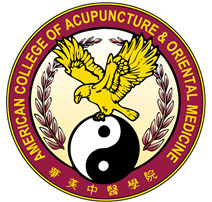
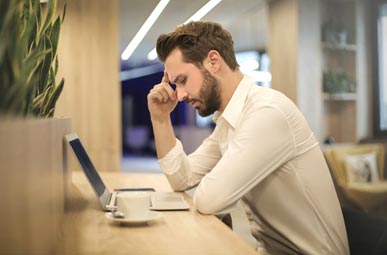
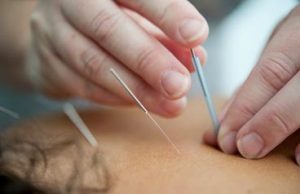
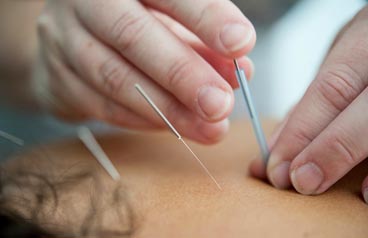

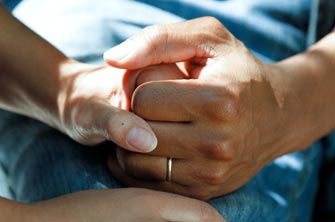
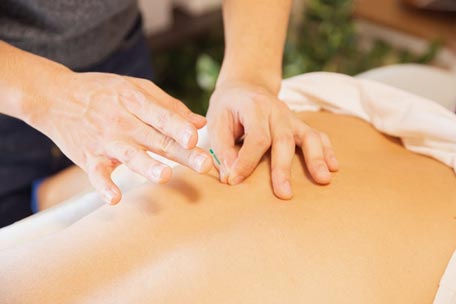

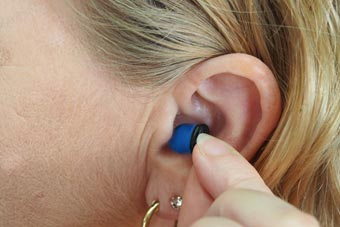
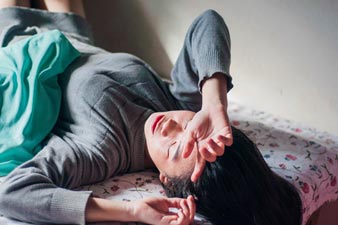
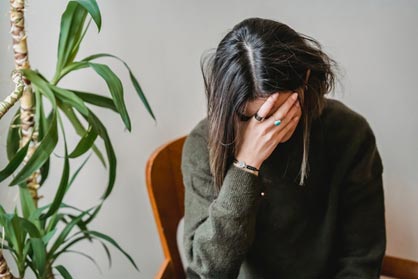
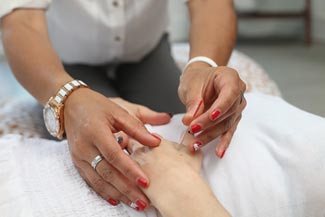
Recent Comments